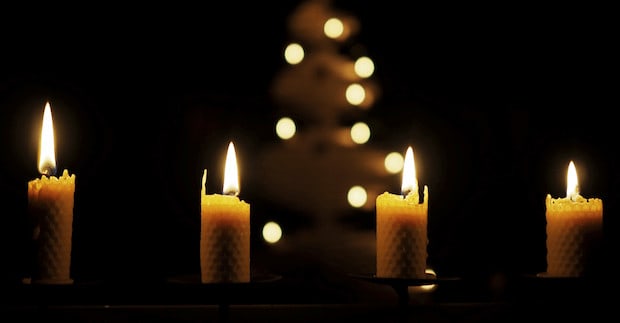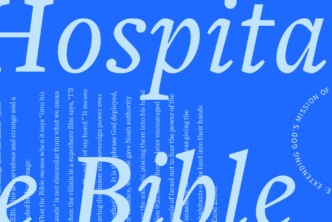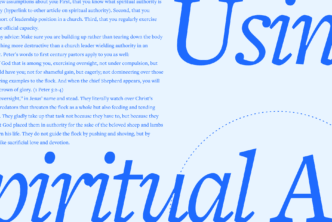“How is it almost Christmas?” I ask that almost every year—but especially in this one . . . 2020 . . . the year that has somehow moved by slower than a slug but quicker than a Tesla Model S on the Autobahn—simultaneously. (Motion sickness, much?)
We may not be ready for Christmas in 2020. Let’s be ready for Advent.
This challenge comes from an Advent sermon by David deSilva in In Season and Out: Sermons for the Christian Year.
***
If we find that Christmas is upon us this year and we’re not altogether ready for it, it won’t be the end of the world. But if Christ’s coming again finds us unprepared, living as people who haven’t been looking for it—well, that’s another story, isn’t it? Advent is our wake-up call to what is coming, to who is coming, rousing us to shake off our sleep and restore our souls to vigilance. And we cannot afford to keep hitting the snooze button on this alarm.
. . .
I’m not speaking here just of an opportunity to “get saved” or “accept Jesus” or any such pale shadow of what God seeks from each one of us. I mean here an opportunity to do the work that our Lord has entrusted to us—to each one of us as a disciple, to all of us as a congregation, and to all congregations together as the global body of Christ.
Beware, keep alert; for you do not know when the time will come. It is like a man going on a journey, when he leaves home and puts his slaves in charge, each with his work, and commands the doorkeeper to be on the watch. Therefore, keep awake—for you do not know when the master of the house will come, in the evening, or at midnight, or at cockcrow, or at dawn, or else he may find you asleep when he comes suddenly. And what I say to you I say to all: Keep awake. (Mark 13:32–37 NRSV)
This last sentence is one point in Mark’s Gospel where we find Jesus himself thinking beyond his immediate circle of hearers—namely, his disciples who have gathered around him on the Mount of Olives for this teaching—and thinking about the many who will hear him through them. We can almost see and hear Jesus at this point speaking to us, looking past his disciples and directly into the camera, as it were, to deliver this admonition to us: “Keep awake!”
The question for us in this interim is not, “How long will it be?” or, heaven forbid, “Can we figure out exactly when it will be?” It is also not, “Why isn’t God doing anything to help? To make things better? To make it easier for us to believe and to invest ourselves in his work?”
The question for us is: Are we doing the work that Jesus has entrusted to us, like servants who hope to be found faithfully and diligently doing that work when he returns? Or are we doing our own work, attending to our own agendas, seeking our own interests, making up our own list of things to do each day that have little or nothing to do with the work that God has laid upon us to do? Servants cannot afford to act that way; servants must attend first and foremost to the work the master has given them and then to their own interests only as time permits—not the reverse.
When Christ comes, he will encounter each one of us as either part of the problem or part of the solution in regard to the ills that beset this world.
There will be no middle ground—and those who stand on the sidelines watching the ills that beset the world, shaking their heads and complaining that God isn’t doing anything about it, are part of the problem, not part of the solution.
What, then, is the work that the master has laid upon us, to occupy us in this interim?
God wants for us to know him, to live fully in relationship with him and in response to him. God wants for us to grow into the people that he is re-creating us to be through the working of the Holy Spirit in our midst—to be changed from self-centered and self-driven people into other-centered and Spirit-driven people whose joy it is to do what pleases God.
God wants for us to go out to bear witness to and extend his kingdom, his hope, his love, his provision, his justice everywhere that there is need.
We can say so much about the work generally; each one of us has to discern our particular tasks toward attaining these ends. Scripture is an indispensable and inexhaustible resource for us in this process of discernment. Every page reveals something about the character, the heart, the driving passions of the God we serve. Every page reveals something to us about the character, heart, and driving passions of the people that Jesus died to empower us to become. Every page has something to say about how to invest ourselves in real-world actions that will advance what God wants to accomplish through us.
Jesus’ word to us this Advent, Jesus’ word to us today, is that those who wake up to understand and pursue these things, who refuse to be as one asleep to God or to God’s purposes for us any longer, are indeed favored. He invites us to renewed attentiveness—to watchfulness—in regard to this work of knowing, growing, and going as he desires and directs us day by day. He invites us to put at the top of our list of things to do his list of things to do.
The question that his coming again will pose to each one of us when we lay eyes upon him is this: “Did your life show my death to be worthwhile? Did you devote your individual lives and your common life together to everything that my death opened up for you, and did you diligently discharge the responsibility that my death placed upon you—to live no longer for yourself, but for the one who died and was raised on your behalf?” (see 2 Corinthians 5:15).
The first gift of Christmas is this gift of Advent—the gift of an opportunity to ask ourselves these questions and work to realign ourselves such that we will be better able to answer “yes” in the coming year than we were in the year that is now past. And when we can answer “yes,” then we will be living as people who are fully awake rather than still asleep to what’s really important in this world, for this life.
During Advent, we often sing the familiar hymn, “O Come, O Come, Emmanuel.” I would invite you not to sing it as we might imagine the people of ancient Judea singing out their prayers for a Messiah who would come to deliver them, nor as if the object of this hymn—this prayer—was fulfilled in the birth of Jesus so long ago.
I would invite you, instead, to sing it to the Christ who sits enthroned at God’s right hand, whose coming again in glory we confess as a pillar of our faith, and whose future interventions we count on for the fulfillment of our hope.
I would invite you to sing it as people who are newly committed to live and invest yourselves such that you will have no cause for shame, and he no cause for disappointment, when he does come in fulfillment of his word.
The above excerpt is adapted from In Season and Out: Sermons for the Christian Year, available now from Lexham Press.








